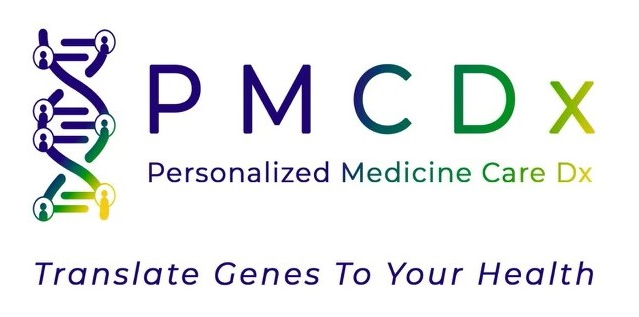| APC |
Heterozygous pathogenic variants in APC are associated with both classic and attenuated familial adenomatous polyposis (FAP), Gardner syndrome, Turcot syndrome, and Hereditary Desmoid disease. |
PubMed: 20301519; OMIM: 175100 |
| BMPR1A |
Heterozygous pathogenic variants in BMPR1A are associated with Juvenile Polyposis Syndrome (JPS). |
PubMed: 17303595, 20301642, 9869523; OMIM: 174900 |
| CDH1 |
Pathogenic heterozygous variants in the CDH1 gene are associated with signet ring cell colon cancer, as well as gastric and lobular breast cancer. |
PubMed: 11729114, 20301318; OMIM: 192090 |
| MSH6 |
Autosomal dominant pathogenic variants in MSH6 are associated with Hereditary Non-Polyposis Colorectal Cancer (HNPCC), also known as Lynch Syndrome. Biallelic pathogenic variants have been associated with constitutional mismatch repair deficiency syndrome (CMMRD). |
PubMed: 20301390, 22692065; OMIM: 120436 |
| EPCAM |
Heterozygous pathogenic variants in the EPCAM gene cause Hereditary Non-Polyposis Colorectal Cancer (HNPCC), also known as Lynch Syndrome. |
PubMed: 20301390, 23462293 |
| SMAD4 |
Heterozygous pathogenic variants in SMAD4 are associated with Juvenile Polyposis Syndrome (JPS). Biallelic pathogenic variants cause Hereditary Hemorrhagic Telangiectasia (HHT). |
PubMed: 19553198, 20301642 |
| MLH1 |
While heterozygous pathogenic variants in MLH1 are associated with Hereditary Non-Polyposis Colorectal Cancer (HNPCC), also known as Lynch Syndrome, biallelic pathogenic variants have been associated with constitutional mismatch repair deficiency syndrome (CMMRD). |
PubMed: 20301390, 22692065; OMIM: 120436 |
| MSH2 |
Heterozygous pathogenic variants in MSH2 are associated with Hereditary Non-Polyposis Colorectal Cancer (HNPCC), also known as Lynch Syndrome. Biallelic pathogenic variants have been associated with constitutional mismatch repair deficiency syndrome (CMMRD). |
PubMed: 20301390, 22692065; OMIM: 120436 |
| MUTYH |
Biallelic pathogenic variants in the MUTYH gene cause MUTYH-associated polyposis syndrome (MAP). Heterozygous pathogenic variants in the MUTYH gene may result in a small increased risk for colon cancer. |
PubMed: 16492921, 19394335, 23035301 |
| NTHL1 |
Biallelic mutations in the base excision repair gene NTHL1 have been associated with familial adenomatous polyposis-3 (FAP3) which is also referred to as NTHL1-associated polyposis (NAP). |
PubMed: 28331556, 26431160; OMIM: 602656 |
| PMS2 |
Heterozygous pathogenic variants in PMS2 are associated with Hereditary Nonpolyposis Cancer Syndrome (HNPCC), also known as Lynch syndrome. PMS2 is the least common of the mismatch repair genes that cause HNPCC, accounting for less than 5% of cases. Biallelic pathogenic mutations in PMS2 have been associated with constitutional mismatch repair deficiency syndrome (CMMRD). |
PubMed: 20301390, 22692065 |
| POLD1 |
Heterozygous pathogenic variants in POLD1 have been associated with colorectal cancer and other adenomas including endometrial and breast. |
PubMed: 24509466, 23263490 |
| POLE |
Heterozygous pathogenic variants in the POLE gene are associated with early onset colorectal cancer (CRC) and polyposis, also known as Polymerase Proofreading-associated Syndrome (PPAS). Further studies are needed to determine which cancers are directly related to POLE gene variants and the levels of associated risks. Based on the information available today, the risk for colorectal cancer appears to be significantly elevated, and the risk for brain tumors may also be increased . |
PubMed: 23263490, 26133394; OMIM: 174762 |
| PTEN |
Individuals with heterozygous pathogenic PTEN variants are at a significantly increased risk for multiple types of cancers, including breast, thyroid, colorectal, endometrial, renal, and others. Autosomal dominant mutations in PTEN have been associated with a spectrum of disorders sometimes referred to as PTEN hamartoma tumor syndrome. PHTS includes several conditions with overlapping clinical features, including Bannayan-Riley-Ruvalcaba syndrome (BRRS), Cowden syndrome (CWS1), macrocephaly/autism syndrome, and PTEN-related Proteus syndrome (PS). |
PubMed: 20301661; OMIM: 601728 |
| STK11 |
Autosomal dominant pathogenic variants in STK11 have been associated with Peutz-Jeghers syndrome (PJS) which is associated with an increased risk for multiple types of cancer, including breast, ovarian, gastric, colorectal, and pancreatic. |
PubMed: 15121768, 20301443; OMIM: 175200, 260350 |
| TP53 |
Heterozygous pathogenic variants in the TP53 gene are associated with Li-Fraumeni syndrome, a condition that increases risk for many types of cancer, including colorectal cancer. |
PubMed: 16401470, 27713038, 20301488, 26014290, 2614290; OMIM: 151623, 191170 |
| AXIN2 |
Heterozygous pathogenic variants in AXIN2 are associated with Oligodontia-Colorectal Cancer Syndrome (ODCRCS) . ODCRCS is associated with an elevated risk for colorectal (colon) cancer in both men and women, in comparison to the general population, albeit the current elevation in risk remains unkn |
PubMed: 15042511; OMIM: 608615 |
| CHEK2 |
Heterozygous pathogenic variants in CHEK2 are associated with approximately a two-fold increased risk for breast cancer, as well as an increased risk for other CHEK2-associated cancers, including colon cancer. |
PubMed: 15492928, 21807500, 23713947, 28283864 |
| FAN1 |
Heterozygous pathogenic variants in the FAN1 gene have been associated with Hereditary Non-polyposis Colon Cancer (HNPCC) in a few families. However, additional research is needed to confirm this association. |
PubMed: 26052075, 27713038 |
| GREM1 |
Duplications upstream from the GREM1 gene have been associated with Hereditary Mixed Polyposis syndrome. |
PubMed: 22561515, 25992589, 26947005, 28242209; OMIM: 603054 |
| MLH3 |
Autosomal dominant pathogenic variants in MLH3 have been found in a few families with Hereditary Non-Polyposis Colorectal Cancer (HNPCC). Further studies are needed, however, to confirm the association. |
PubMed: 11586295, 12702580, 20301390; OMIM: 604395 |
| GALNT12 |
Heterozygous germline pathogenic variants in GLNT12 may contribute to an increased risk for colorectal cancer; however, additional research is needed to confirm this association and define any related risks. |
PubMed: 19617566, 22461326, 24115450 |
